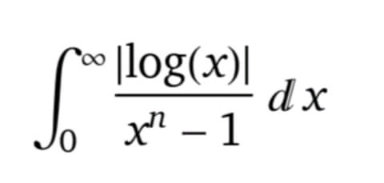
AllQuestion and Answers: Page 611
Question Number 159016 Answers: 0 Comments: 0

Question Number 159015 Answers: 1 Comments: 0

Question Number 159012 Answers: 0 Comments: 0
Question Number 159011 Answers: 0 Comments: 0
Question Number 159010 Answers: 0 Comments: 1
Question Number 159009 Answers: 0 Comments: 0

Question Number 159008 Answers: 1 Comments: 0
$$\int\frac{\mathrm{6}^{{x}} }{\mathrm{4}^{{x}} +\mathrm{9}^{{x}} }{dx}=? \\ $$
Question Number 159005 Answers: 2 Comments: 0

Question Number 159001 Answers: 0 Comments: 0

Question Number 159000 Answers: 0 Comments: 0

Question Number 158996 Answers: 0 Comments: 0
Question Number 158995 Answers: 0 Comments: 1
Question Number 158993 Answers: 0 Comments: 0
Question Number 158991 Answers: 0 Comments: 0

Question Number 158990 Answers: 0 Comments: 0
$$\:\int\:\frac{\mathrm{sec}\:{x}}{\mathrm{sin}\:{x}+\mathrm{csc}\:{x}−\mathrm{1}}\:{dx}=? \\ $$
Question Number 158989 Answers: 0 Comments: 0

Question Number 158988 Answers: 2 Comments: 0

Question Number 158984 Answers: 0 Comments: 0
Question Number 158983 Answers: 0 Comments: 0

Question Number 158982 Answers: 0 Comments: 0

Question Number 158980 Answers: 0 Comments: 0

Question Number 158978 Answers: 1 Comments: 1

Question Number 158977 Answers: 0 Comments: 0

Question Number 158976 Answers: 1 Comments: 0

Question Number 158973 Answers: 1 Comments: 0

Question Number 158965 Answers: 2 Comments: 0
$$\:\int\:\frac{\sqrt{\mathrm{1}+{x}}}{\:\sqrt{{x}}\:+\mathrm{1}}\:{dx}\:=? \\ $$
Pg 606 Pg 607 Pg 608 Pg 609 Pg 610 Pg 611 Pg 612 Pg 613 Pg 614 Pg 615
